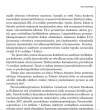Saapa nähdä, eteneekö asia. Britit olivat ilmeisesti tosiaan suurin jarru tämän suhteen. Tässä toinen arvovaltainen ulostulo (kenraali) lyhyen ajan sisään.
http://www.defensenews.com/articles/former-italian-general-calls-for-european-army-after-brexit-vote
Former Italian General Calls for European Army After Brexit Vote
By:
Tom Kington, August 25, 2016 (Photo Credit: Tech. Sgt. Kevin Wallace/British Royal Air Force)
ROME — One of the founding fathers of Europe’s long held plan for a unified army has said the
UK exit from the European Union is the perfect time to realize the ambition, following years of British “sabotage” of the concept.
Gen. Vincenzo Camporini, a former head of the Italian general staff, told Defense News that the EU’s plans for a series of multinational battle groups run by an EU military headquarters could now flourish after the UK voted to leave the EU in June.
“The UK’s opposition to setting up the EU military HQ put a stop to it,” Camporini said.
Camporini was one of four European military officials who formed a working group in 1999 to map out a European army, a plan known as the Helsinki Headline Goal. He is now vice president and a security and defense analyst with the IAI think tank in Rome.
Some battle groups have been formed, including an Italian-Slovenian-Hungarian group, but others exist only on paper.
“Those that exist have never been tested,” Camporini . “When will we follow the NATO example and have annual exercises?”
Another way Europe has sought to integrate armed forces was by setting up the European Defense Agency, a pan-European office designed to encourage joint procurement.
Camporini said the agency remained weak and ineffective, thanks in part to the UK undermining it.
“The UK always opposed funding increases, and three quarters of the agency’s budget is absorbed by salaries, leaving it as a body whose scope is survival,” he said. “It was clear that after its early enthusiasm, UK sentiment for EU defense cooled.”
Camporini said the military cooperation deal struck by the UK with France in 2010 was emblematic of the UK approach to European defense.
“The treaty clearly stated it was not to be extended to other countries. When a few months later as Chief of Staff I met in a ‘quad’ format my colleagues from France, Germany and UK, [then-Chief of the Defence Staff for the UK] Gen. [David] Richards and [then-Chief of the Defense Staff for France] Adm. [Edouard] Guillaud were really embarrassed to have to admit to this," Camporini said.
With the UK on its way out of the heading out of Europe, British opposition would no longer be a factor, but there would be other benefits, said Camporini. “The British attitude was an excuse for other — some people hid behind the UK. Now the excuse is no longer there; who is ready to go forward? I believe the Germans are willing, although I have doubts about France because of its nuclear deterrent. Will that be shared? It is a very delicate political issue.”
If Europe does now create a military capability, it will lack a British contribution, but Camporini said declining UK capabilities meant that was no longer a problem.
“If anyone had proposed building a European capability in 1999 without the UK, I would have said they were crazy, but during the last few years, UK governments have been greedy with the peace dividend and they gave up their sea projection capability, which they will not get back before their new carriers arrive,” he said.
The prospects for European collaboration appear brighter after the leaders of France, Germany and Italy all stressed military cooperation when they met in Italy for a post-Brexit vote summit.
Analysts have suggested defense cooperation is a handy cause to rally round since European leaders agree on little else, but a series of factors, from protecting frontiers to Russian aggression, have put a common defense back on the agenda, particularly among Eastern European states.
But before Europe can push on, Camporini said it would need to work on its political and military coordination. “We need to test decision-making procedures — there is no point having battle groups ready if you need months to get a political sign off.”
He cited the Eurofor military headquarters set up by Italy, France, Portugal and Spain as an example: “When the time came to deploy it to Kosovo, just after Kosovo declared independence, Spain vetoed it. We had a beautiful instrument which was eventually disbanded.”




